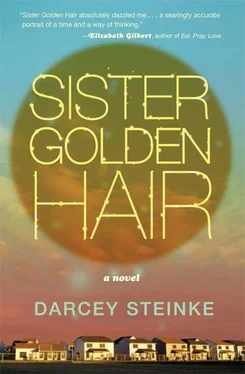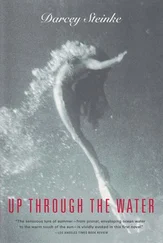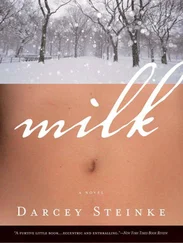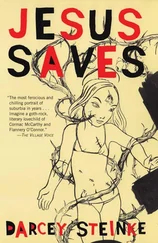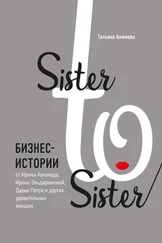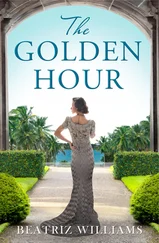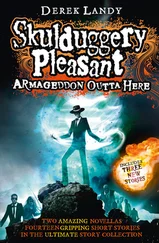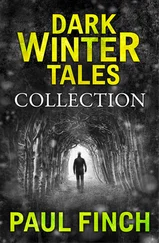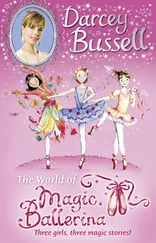Neither of them looked in our direction. Upstairs, Jill had the same room as mine, though hers was decorated more sparsely, with a mattress on the floor and a cardboard dresser. She’d taped pictures from magazines up on the wall, mostly baby animals and photographs of sunsets. In one corner, a giant stuffed panda, whose name was Barnabas, slumped over as if he’d been shot in the back.
“I didn’t talk to you at first,” Jill whispered, “because I wasn’t sure I could trust you.”
“Why are you whispering?” I said.
Jill pointed to the wall.
“My mom is sleeping.”
She told me how in sixth grade Sheila had pretended to be her friend but once Sheila got her braces off she’d told everyone at school that Jill was a dirtbag.
“She announced that I had leg spasms, which was true, but it only happened once. And she said my farts smelled like dog food.”
“Whose farts smell good?”
“Hers,” Jill said. “They smell like cinnamon.”
She shook her head.
“She’s just the worst sort of person,” Jill went on, “two-faced and a bitch.”
Jill cast her eyes down to her blanket, a nubby afghan of triangular blue and pink strips.
“Were you planned?” she asked.
This was a common question. If you were planned it meant your family wanted you, you’d come into a friendly spot, you were loved. But if you weren’t planned, that was a whole other story.
“I was,” I said. “But my little brother wasn’t.”
My parents had never actually admitted this, but my mother had implied it a few times.
“None of us were planned,” Jill said. “Not a single one.”
It was hard for me to figure out how this could be true. But before I could ask Jill more about it, her face got very serious. She was suddenly deadly serious.
“Before we can be friends,” she said, “you need to know that the Bamburgs are a tragic family.”
“In what way?”
“In just about every way you can imagine,” she said. “You name it, we’re tragic.”
She pulled out a drawer.
“For instance—”
She took out a black comb with dandruff lodged in the teeth and a key chain with a Harley Davidson medallion. She laid both on the bed.
“That’s it, that’s all I have left of my daddy.”
“What happened?”
“Motorcycle wreck. He’s buried in that graveyard on 419 next to the Taco Bell.”
“That’s terrible,” I said. I never knew what to say when people told me sad stuff. Jill took the comb into her open palm and looked at it as if the thing had the power to transport her back to the sixties when her dad was still alive. I wanted to change the subject.
“Did you know the lady who lived in our unit?”
“Miranda? She had a Dolls of the World collection.”
“What about her ex?”
“He’s a freaky hippie guy. He threw her clothes off the deck once. But for around here, that’s nothing. Did you know a lunatic roams the woods at night?”
I shook my head.
“I heard from a kid in 4A that he loves the taste of children’s pinkies. Eats them like chicken wings.”
We heard her mom get out of bed. Jill put her finger to her lips as she left the room. It was her job to get her mom a bowl of cereal and bring her the black pants, white blouse, and apron she had to wear to waitress at the Western Sizzler. While I waited, I poked around Jill’s room. In her closet a dress hung sideways off the hanger and a metal back brace lay on the floor over her shoes. On the shelf above, there was a line of dirty stuffed animals. The pink kitten had a lazy eye.
After her mother left the house and I heard her car head down the road toward the highway, Jill called up the stairs that the coast was clear. By the time I got down, she had thrown the couch cushions on the floor and Ronnie had pulled the bedspread off the wall and tied it around his neck. He was repeating the lines of Barnabas Collins from a recent episode of Dark Shadows . Inside the mausoleum, Maggie was questioning Barnabas about a sheep that had been killed. The creature had been found drained of blood. I watched until the scene changed to Parallel Time and Jill dragged me up to the bathroom, made me get into the tub, close my eyes, and grub through the bathroom shower curtain. I had to close my eyes tight and push through the plastic until I’d moved into another dimension. Once I was there she informed me in a solemn voice that Ronnie and I were now married and she was dying of a brain tumor.
At five o’clock I told them I had to go home for dinner. Jill seemed to take this as an insult. She cast her eyes down and I thought she would now confide a grisly detail from her father’s death, that his arm had been ripped off in the crash or that his eyes had popped out of their sockets. Instead she asked if I’d follow her into the basement.
In the dark laundry room she pulled the string that turned on the overhead bulb and reached into the space between the washer and the dryer. She brought out a towel, unfolded it, and lifted up an elongated string bean. I recognized the long green pod as one of the ones that grew on a tree beside the empty foundation up the mountain. It was a big tree with huge ragged leaves and long beans growing down like sci-fi fringe.
“When they dry out,” she said, “we can smoke them in the French Quarter.”

Tanglewood Mall, off the highway and about ten miles from Bent Tree, had a special section in one corner called the French Quarter. I’d seen the ads in the paper for the Tennis Villa, where rich ladies bought little white tennis dresses, and Mrs. Smith told me that the port-wine cheese at the Gourmet Shoppe was the most divine thing she’d ever tasted. There was a rumor that when Little Feat came to the Civic Center, the lead singer got a trim at The UpperCut, the French Quarter’s unisex salon.
Twice my mom had taken us to the mall, but both times she’d only wanted to shop for bargains at J. C. Penney, and I had had to run after Phillip, who had a terrible habit of wandering off in department stores.
At the end of the first week of school, Jill persuaded her mom to drop us off at the mall. I told my mom that Mrs. Bamburg would be shopping with us, even though I knew she planned to go off to the Ground Round across the road and drink beer with her friend.

The bean pods, wrapped in tinfoil and stuck in Jill’s Mexican shoulder bag, made a muted rattling sound against her hip as we moved through the mall.
“They have samples in the cheese shop,” Jill said, “the sweetest cheese you’ve ever tasted.”
“What kind is it?”
“How should I know? What I’m trying to tell you is that it tastes good.”
We walked through Penney’s and into the mall. So far Tanglewood was the only Sun Belt part of Roanoke. Under a cathedral ceiling, a fountain bubbled beside soaring palm trees. I actually felt like I’d been transported to one of the planets I was always reading about in science fiction novels. We passed Chess King, Jeans West, Merry-Go-Round, where a whole carousel of suede fringe vests were on sale. I was still confused as to why we couldn’t just smoke the pods up in the woods in back of Bent Tree.
Jill was on a mission, leading me toward the French Quarter, the mall’s soft, sweet center. Under a brick archway lay a darkened expanse of small shops with thatched roofs and gold windows. We roamed the dim corridors past the window of the Tennis Villa, where a white dress shimmered, smelled fresh-ground coffee wafting out the door of Lock, Stock, and Barrel, and passed the Seven Dwarfs, whose window featured imports from Europe — Hummel figurines, music boxes, crystal ashtrays. The mannequin in the bridal shop had blue glass eyes and long eyelashes. She stared across the corridor to the mannequin in the Hancock’s men’s shop window, in a sports coat and leather driving gloves.
Читать дальше
